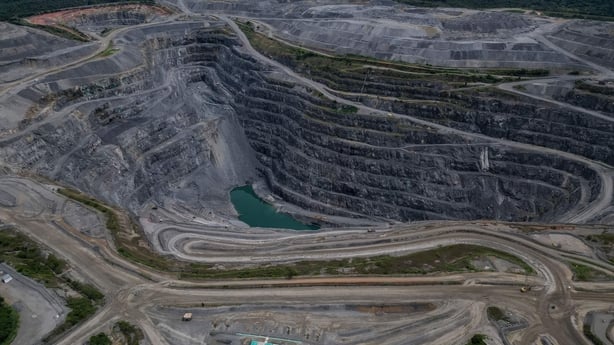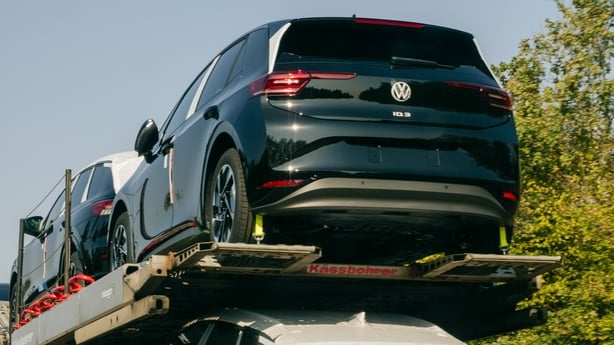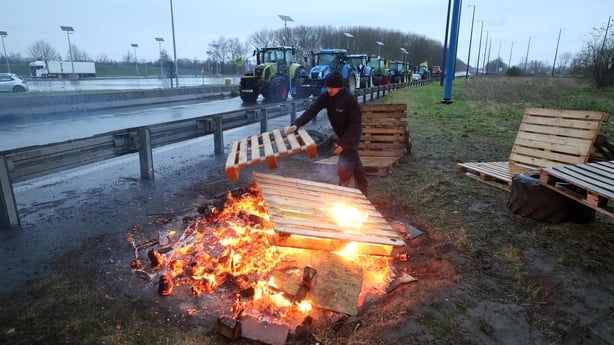The European Union has struck a controversial free-trade deal with Mercosur members Argentina, Brazil, Paraguay and Uruguay despite opposition from some EU nations.
The deal must now be ratified by EU states, but unanimity is not required.
Here is a look at the path towards an agreement that was years in the making:
What is the deal?
Mercosur was launched by Argentina, Brazil, Paraguay and Uruguay in 1991.
Venezuela joined later but was suspended from the bloc for democratic backsliding in 2016, while newest member Bolivia is not a part of the Mercosur deal.
The EU and Mercosur began negotiating in 1999 with the goal of eliminating most import taxes and creating a 700-million-customer free-trade area.

South American countries are keen to tap European demand for their beef, poultry, sugar, rice and other commodities, plus minerals such as lithium, copper and cobalt, which are key ingredients in the clean-energy transition.
The 27-member EU wants to expand the market for its cars, machines and pharmaceuticals.
The two sides reached a preliminary agreement in 2019, but opposition in parts of Europe stalled ratification.
Who would win?
President of the European Commission Ursula von der Leyen hailed what she called a "win-win" deal, as she announced the agreement at a Mercosur summit in Montevideo.
She said that it would save EU companies €4 billion in export duties each year.
Companies will be able to tap a market of 270 million people in Mercosur and 450 million in the EU.
The EU says that the deal would ease access to the South American market for key products including wine - currently taxed up to 27% - spirits and cheese.
Spain's government, which backs the deal, touts its impact on wine and olive oil exports, while Germany hopes to sell more cars.
The South American agricultural sector, meanwhile, hopes to ramp up exports of products including meat, soy and corn.

The four Mercosur signatories exported almost €23 billion in agricultural goods to the EU last year.
The commission said that the deal would ease customs procedures and allow its firms to bid for public contracts on "equal terms" with Mercosur companies.
Who would lose?
The potential deal has drawn opposition from Europe's agricultural sector, notably in France, where farmers have protested noisily.
"The (European) agricultural community's fears have materialised," Europe's COPA-COGENA farmers group said today.
An official in President Emmanuel Macron's office said that the deal remains "unacceptable" to France in its current form.

European farmers are crying foul over supposedly looser regulations on the sector in South America, pointing especially to the industry's role in destroying huge swathes of the Amazon rainforest, a crucial buffer against climate change.
"It's difficult to find the origin of every cow. We don't know how to trace them," said economist Maxime Combes, adding that this means there is no way to determine whether farmers followed environmental norms.
The European Commission said that, under the deal, "any product entering the EU market must comply with the EU's stringent food safety standards".
The agreement would also eliminate import duties on around 60,000 tonnes of Mercosur beef.
The commission argues that this a relatively small amount, about 1.6% of EU beef production.
It also said that the deal now integrates the terms of the 2015 Paris Climate Accord, which France had insisted upon, allowing for a suspension if one party is in serious breach of its climate pledges.
Brazil has sought exemptions for sectors it considers strategic, such as automobiles.
What next?
The deal must now be ratified by EU states, but unanimity is not required.
Rules dictate that 15 member states, accounting for 65% of the 27-nation bloc's population must approve it.
Then it has to secure a majority in the European Parliament.
France has been lobbying to block the deal, recently joined by Poland.
Italy, Austria and the Netherlands have also voiced reservations.

